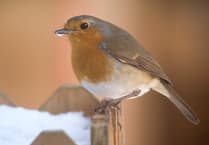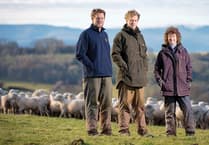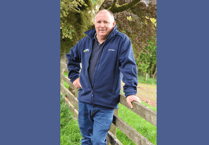Brecon and Radnorshire MS James Evans has criticised Welsh Labour and Plaid Cymru for voting against a Welsh Conservative motion to scrap the Sustainable Farming Scheme (SFS).
The debate took place in the Senedd on Wednesday (October 8), with the Welsh Conservatives arguing that the SFS threatens livestock numbers, jobs, and farm incomes across Wales. The Welsh Government’s own assessment, published last month, suggests the scheme could result in a 5 per cent reduction in livestock numbers, a 4 per cent fall in on-farm labour, and a 16 per cent drop in farm business income, amounting to £76.3 million lost.
Mr Evans said he was “bitterly disappointed” by the vote.
“The Welsh Government’s disregard for Welsh livestock numbers highlights a significant risk to food security,” he said.
“The predicted loss of 56,000 animals is shocking and comes on top of already falling livestock numbers in Wales. Welsh Labour’s SFS will cost jobs, break up family farms, and hit the Welsh economy significantly.”
He added that farmers were already under pressure from UK Government’s ‘family farm tax’, as well as ongoing industry challenges such as bovine TB and the threat of Bluetongue.
“Only the Welsh Conservatives are the true friends of farming and our rural areas,” he said.
“This is why the Welsh Conservatives have brought forward a motion today to scrap the SFS scheme and bring forward a scheme that works for farmers, places food security and production at its core.”
Deputy First Minister Huw Irranca-Davies defended the SFS, stressing that the figures cited by the Conservatives were scenarios, not predictions.
“Nowhere in the evidence we have published does it say that job losses, livestock reductions, or reductions in farm business income will definitively happen,” he said.
“This is trying to turn really complex information into simple soundbites.
“The documents we published allow us to invest over £340 million in the sustainable farming scheme in 2026.”
He added that the SFS is designed to be flexible, allowing farmers to manage their habitats and stocking levels according to what works for their individual farms.
Mr Irranca-Davies said: “The economic modelling assumes that all farmers would be forced to follow strict stocking rates for habitat management. As I say, this will not be the case in practice. We have got an outcome-focused approach within the SFS. This is being ignored by the Conservatives. It means that livestock reductions and, consequently, the reductions in farm business incomes and standard labour requirements are much less likely to happen than the modelling results might suggest.”
Plaid Cymru also voted against the motion, with rural affairs spokesperson Llyr Gruffydd warning against scrapping the scheme entirely. He said the sector had already suffered years of uncertainty following Brexit, and that the transitional period built into the SFS was crucial for farmers to adapt.
“The agricultural unions are right in my view: don't go for the nuclear option and throw everything aside,” he said.
“Yes, there is work to be done, there is room for improvement, and, yes, the Government must continue to evolve this plan as it moves forward. But, essentially, it is a programme that provides us a structure with which we can work. At the end of the day, every individual farm has to look at the impact on their own business—one headline figure does not always tell the whole story.”





Comments
This article has no comments yet. Be the first to leave a comment.